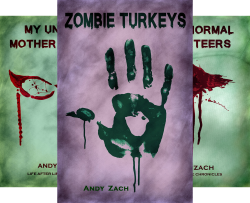
Free Plotting Lessons Part Two – Just when you think you’ve learned all you can about plotting, then you discover F. This, of course, is a follow up to Free Plotting Lessons Here from author Andy Zach, my previous blog post.
What do you get? First, you learn about hooks.
Free Plotting Lessons Part Two from Author Andy Zach – Lesson 3 – Start with Your Hook
Second, you learn how to fill in your scenes.
Lesson 4 – Fill in your scenes
Finally, this lesson includes a free spreadsheet from me, Andy Zach!
Free Plotting Lessons Second Lesson – Start with Your Hook
What’s a hook? An irresistible opening to your book that intrigues the reader and forces them to read more. And more. And more.
A hook is a plot device. It can be:
- A startling or mysterious statement
- A dramatic or deadly situation.
- A heart-tugging situation – heroine tied to railroad tracks, a child in a fire.
How do you write a hook?
First, I’ll give you some examples.
From The Hunger Game, by Suzanne Collins, you have this:
Doesn’t that set off questions? Who is Prim? Who is the narrator? What’s the ‘reaping’?
From the sublime (in terms of book sales) to the ridiculous: my own novel Zombie Turkeys hook.
Zombie Turkeys – Chapter 1 Bartonville

He felt different. More energetic, more alive. He bred with female after female in his flock without tiring. He stayed awake through the night. The turkey feared no predator.
Then a turkey hunter shot him.
The setting sun overlooked a crisp, clear evening in early November. South of Bartonville, Illinois, a farmer had leased his wood lot to two turkey hunters. Big and burly in their bulky camouflaged outfits, they had just bagged one.
“Good shot, Pete!”
“He’s a big ‘un!”
Pete and Bob walked up to the tom turkey, bleeding on the cold ground. The rest of the flock had scattered into the woods. He had exceptionally good plumage and weighed perhaps twenty pounds. Pete reached down and picked him up by the neck.
“He weighs at least twenty-five pounds!”
Then the turkey’s eyes opened—and gleamed red. He kicked with his spurs and pecked savagely at Pete’s arms and eyes. Dozens of his hens attacked the men from behind.
“Gobble! Gobble!”
He felt different. More energetic, more alive. The turkey had no memory of being shot, but a certain turkey satisfaction at killing his killers. He also enjoyed pecking at their dead meat. He had always liked frogs, but this meat tasted better. The boss turkey led his flock down the road, in search of more predators to eat.
More on Hooks here:
See Book Bub’s article on hooks: Start Your Novel with a Bang! 12 Ways to Hook Readers
Now you practice writing an irresistible hook! Submit it in the comments to this blog. The best hook gets a free ebook: Zombie Turkeys or My Undead Mother-in-law.
If you don’t want to comment, just send it to me here.
Free Plotting Lessons Second – Fill in your scenes
Each scene MUST serve a purpose.
- Advance the plot: X does Y to Z.
- Develop your characters. Make them real people with strengths and weaknesses: X is unfaithful but hardworking. Z is loyal but dumb.
- Give the reader information. X was abused as a child, but very kind. Z was happy as a child, but has a secret. Engage the reader. Make them care.
- Ideally, do all three at once in the same scene, in every sentence.
- Finish with a hook for the next chapter. Force the reader to read the next chapter!
Review your plot outline. Pick one chapter and break it into scenes.
What happens first? Then what logically flows from that event? What do the characters do? How do they react? Portray the effects from each scene. Tug at the reader’s heart.
For your next exercise, break one of your chapters from your outline into scenes. Post your outline as a comment or send it to me. I’ll randomly select one and send you a free ebook.
I didn’t have a scene chart with Zombie Turkeys, and I struggled. Then I learned about scene charts from Rachel Aaron in her book:
2K to 10K: Writing Faster, Writing Better, and Writing More of What You Love
My scene chart from chapter one of my second novel, My Undead Mother-in-law:

To get your copy of my scene spreadsheet, just contact me.
That’s it! Now you’ve finally gotten the whole class I taught on plotting. Ask me any questions you want. I’ll answer each one.
Your friendly, neighborhood, comic paranormal animal author,
Andy Zach










